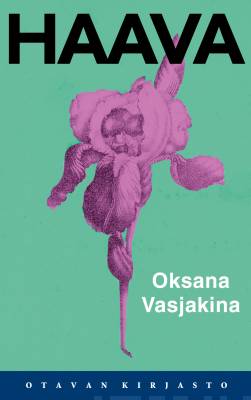RexLegendi reviewed Wound by Oksana Vasyakina
Review of 'Wound' on 'Goodreads'
4 stars
From a publisher’s point of view, I suppose any reason to promote a novel is a good one. In the case of Wound by poet and activist Oksana Vasyakina (1989), there was much ado about its alleged reception in her native Russia, where a law against LGBT+ propaganda is in force. Since the author explicitly mentions her homosexuality, the novel could potentially trigger a sanction. That being said, Wound is not an activist novel. Instead, Vasyakina writes about loss and identity after the death of her mother. Her style is contemplative, at times poetic, and full of oestrogen – men play only minor roles.
Wound is predominantly a stream of thoughts exploring the relationship between mother and daughter. While her journey suggests a close bond, the narrator reveals a certain ‘coolness’ between them. Nevertheless, her mother’s breast cancer and death affect her and prompt her to reflect on what it …
From a publisher’s point of view, I suppose any reason to promote a novel is a good one. In the case of Wound by poet and activist Oksana Vasyakina (1989), there was much ado about its alleged reception in her native Russia, where a law against LGBT+ propaganda is in force. Since the author explicitly mentions her homosexuality, the novel could potentially trigger a sanction. That being said, Wound is not an activist novel. Instead, Vasyakina writes about loss and identity after the death of her mother. Her style is contemplative, at times poetic, and full of oestrogen – men play only minor roles.
Wound is predominantly a stream of thoughts exploring the relationship between mother and daughter. While her journey suggests a close bond, the narrator reveals a certain ‘coolness’ between them. Nevertheless, her mother’s breast cancer and death affect her and prompt her to reflect on what it means to be a woman.
One thing that struck me is that Wound, unlike many other Russian novels, is set only partially in European Russia. As the narrator travels back and forth from Moscow with her mother’s urn, her thoughts trace their history in Ust-Ilimsk, on the border of the Angara River north of Mongolia, and Volzhsky, on the border of the Volga west of Kazakhstan.
I read this novel with pleasure and learned about Siberia, butches, dykes, and femmes. By adding details and progressing her story at a measured pace, the author makes the suffocating environment of her past feel tangible. This is something I’ve previously encountered in Serhiy Zhadan’s [b:Voroshilovgrad|26196168|Voroshilovgrad|Serhiy Zhadan|https://i.gr-assets.com/images/S/compressed.photo.goodreads.com/books/1459805578l/26196168.SY75.jpg|17345772]. Apparently, Vasyakina has also written books about her aunt and father, perhaps making her the Russian Édouard Louis. On the downside, I generally dislike it when authors write about writing, and the sentence ‘she was dying’ may have been repeated a few times too often.
I stayed for a while longer. I wanted to remember this place. I wanted to remember it the way you want to fit a beautiful landscape inside yourself, even though this place was hideous. But it was important. And like every other place of importance, it would not fit inside me.

